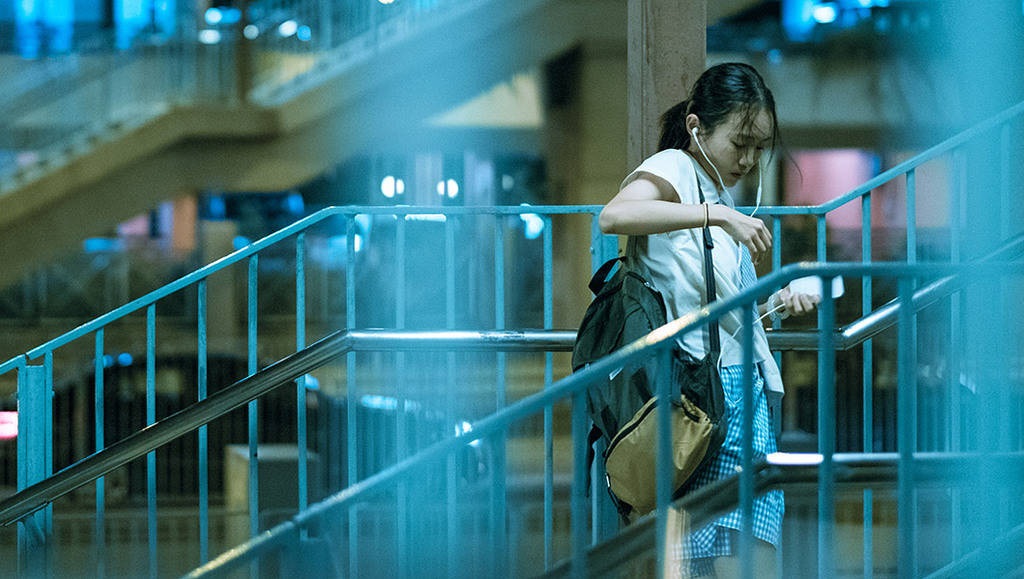Chinese cinema is now deep into its latest movement, its 8th Wave. But this moment is a conflicted one, as intensely contradictory as Chinese existence itself — and its cinema seems self-conscious of this. In titles as disparate as Guo Jingming’s Tiny Times and Hu Bo’s An Elephant Sitting Still, one can see refracted kernels of the lived reality of both the few and the many; while other films, such as Sun Lu’s How Long Will I Love U and any recent work from 6th Wave director Jia Zhangke (e.g. Mountains May Depart or Ash Is Purest White) explicitly contend with the antagonism of extreme differences in material conditions as relating to temporal change — one finding cause to celebrate the differences accumulated over decades, while Jia’s films are defined by ambivalence. Bai Xue’s debut feature, The Crossing, is firmly rooted in this milieu, following the life of Peipei (Huang Yao) on daily commutes from Shenzhen to Hong Kong for school, in struggles with her parents’ working class social position, and as she dreams of traveling to Hokkaido with her best friend. Eventually, in order to fund her travel, and lessen her reliance on family, Peipei gets involved in a smuggling operation.
Bai pays attention to familial tensions and squabbles over money in a way that might remind one of An Elephant Sitting Still, sans that film’s brutal fatalism, but which in fact hews much closer to the tonal management and aesthetic sensibility of a Jia picture (The Crossing happens to share Jia’s regular editor, Matthieu Laclau, and Jia himself is thanked in the credits). This is an odd combination, but one that gives the film a certain beauty and thematic potency that many films of this 8th Wave often lack. Indeed, as a coming-of-age drama, The Crossing benefits greatly from Huang Yao’s standout performance, and from the palpable joy she conveys in finding community and success amongst the cohort of smugglers she falls in with, including a romantic interest. The film is warm-hearted and astute in portraying class positions and the difficulties fostered by financial instability, as well as intelligent in equivocating on moral judgment when it comes to how its protagonists attempt to improve their lot, duplicitously. Yet, in spite of these successes, The Crossing struggles to resolve, and unknot, its contradictions, because the nation as of yet hasn’t. Arriving as some kind of deus ex machina, the state brings order where justice is required, and the compromised feel of this ending leaves a sour taste.
Published as part of Before We Vanish | Issue 3.


Comments are closed.